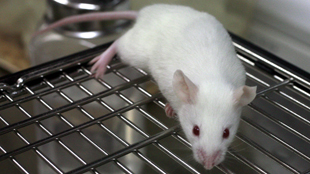 WIKIMEDIA, RAMA
WIKIMEDIA, RAMA
Researchers in Japan have for the first time cloned mice using single white blood cells from peripheral blood samples. The advance could mean the ability to clone infertile mice from which healthy eggs or sperm cannot be obtained. The results were published online Wednesday (June 26) in Biology of Reproduction.
The scientists used somatic-cell nuclear transfer to clone the mice, which had normal lifespans and were able to produce offspring. The cloning technique involves replacing the nucleus of an unfertilized egg with the nucleus of an adult somatic cell, such as a blood or skin cell. The egg is then placed inside a surrogate mother. A previous version of the process was used to clone Dolly the sheep in 1996, and has since been used ...



















